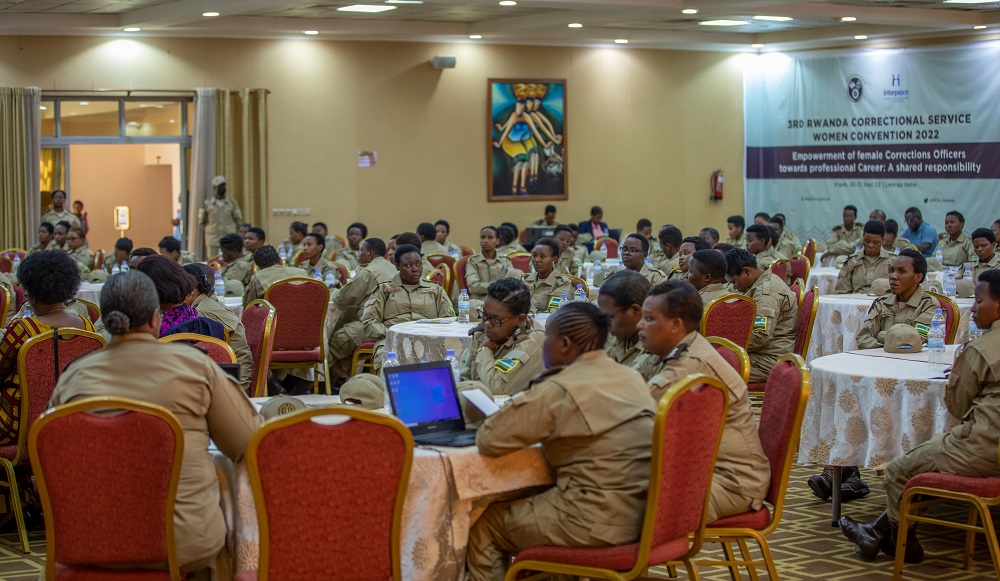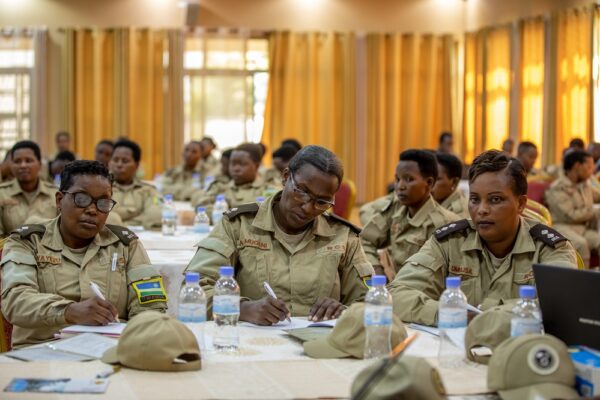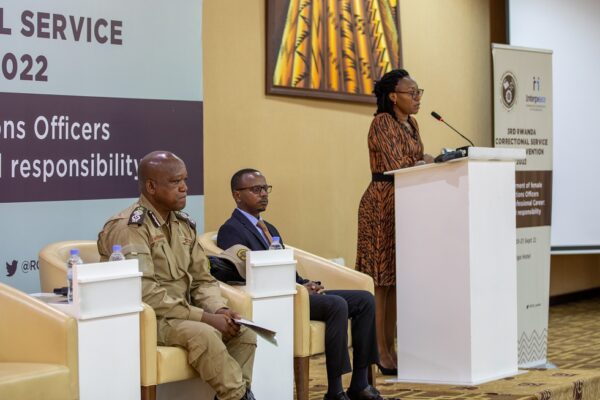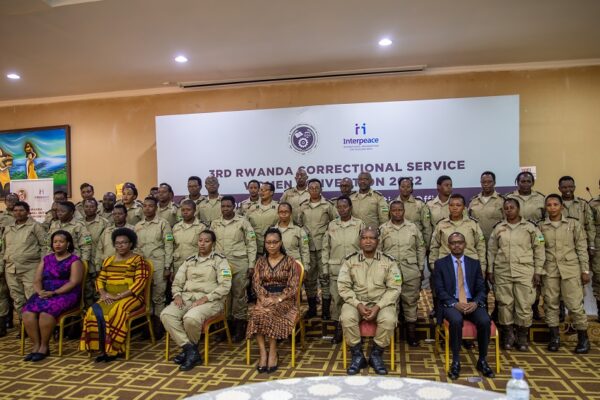Female prison officers play a key role in prisons and prisoner rehabilitation

Women correction officers constitute one quarter of the workforce of the Rwanda Correctional Service (RCS). Alongside their male counterparts, they play a pivotal role in rehabilitating and reintegrating prisoners in the community. However, many challenges still hinder their professional performance and career growth.
On 20 September 2022, the RCS organised the 3rd Rwanda Correctional Service Women Convention, in partnership with Interpeace and RCS’s local partner, the Dignity in Detention Organization (DIDE). The Convention aims to promote gender equality and accountability in the correctional sector.
The two-day event was timely because it occurred a few months after validation of the Curriculum for Prisoner Rehabilitation and Reintegration on 20 July 2022. The Curriculum was jointly developed by Interpeace and RCS, with the technical assistance of the Institute for Legal Practice and Development (ILPD). To implement the curriculum effectively and successfully will require the efforts of all RCS staff members and other stakeholders.

Speaking at the event, the Commissioner General of RCS, CGP Juvenal Marizamunda, explained that the convention’s first purpose was to enhance women’s empowerment in the RCS, in order to improve the performance of female correction officers as well as identify and address any challenges that they face while carrying out their duties.
Titled “Empowering female correction officers towards a professional career: a shared responsibility”, the conference enabled the participants to share professional experiences, information and good practices, and identify the needs and concerns of RCS female correctional officers as well as issues that impede their performance.
The Conference’s approach aligned with Interpeace’s Societal Trauma Healing Programme in Rwanda, funded by the European Union and the Government of Sweden through SIDA (Swedish International Development Agency).

The Societal Trauma Healing Programme includes a component that supports national efforts to rehabilitate and reintegrate prisoners, focusing particularly on those convicted for crimes related to the 1994 Genocide against the Tutsi. The rehabilitation component is led by DIDE and Prison Fellowship Rwanda, Interpeace’s local partners, which have set up healing spaces in prisons and strengthened the capacity of RCS staff members, including through psychoeducation.
Two of the main challenges that participants identified were the low representation of women in leadership positions in RCS units, and the limited access of women to learning opportunities.
The Curriculum aims to equip inmates and RCS staff with more knowledge in a range of areas, including human rights, legal awareness, family dynamics, the safe return of inmates, and positive connections with the community. It will help inmates and RCS staff to tackle some of the challenges that Conference participants identified, especially the need to strengthen capacity through training.

